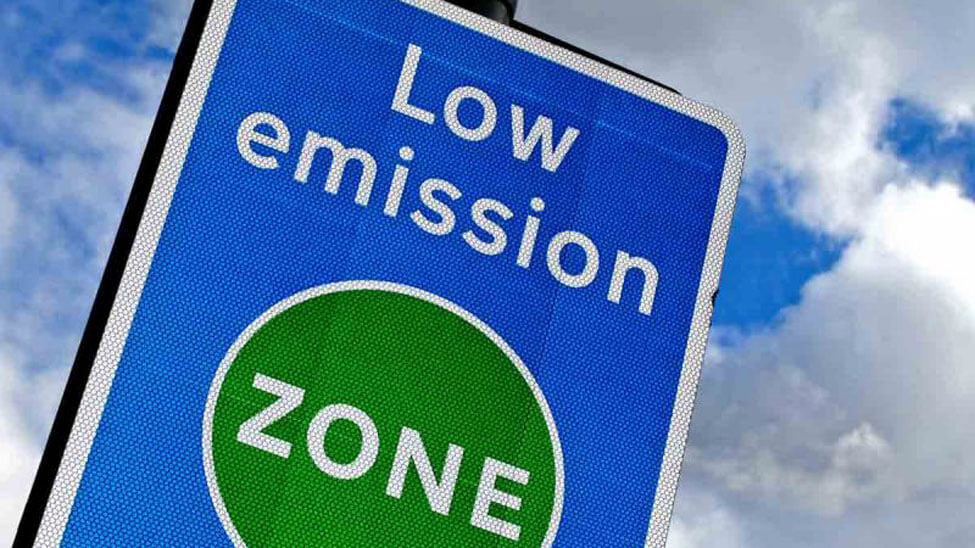
The government has directed Greater Manchester and many other areas throughout the UK to develop clean air plans to reduce the pollutants in the air. The new forward-thinking plans aim to improve the air quality in Greater Manchester are a great idea for protecting the environment and, it has got the full support of ISM Waste & Recycling.
The damage air pollution can do isn't as apparent as other forms of pollution but, without realising air pollution affects everyone's health. With many urban areas having dangerously high levels of pollutants, action is required to help tackle the risks to our health.
Local authorities throughout the area have pulled together to devise the Greater Manchester Clean Air Plan, which is designed to reduce the amount of high polluting vehicles on our roads.
Under the terms of the Greater Manchester Clean Air Plan, any heavy goods vehicle that has a Euro 5 engine or earlier (typically registered before 2013) and wishes to enter and travel within Greater Manchester Clean Air Zone (CAZ) from 2021 onwards will be subject to a daily penalty of £100.
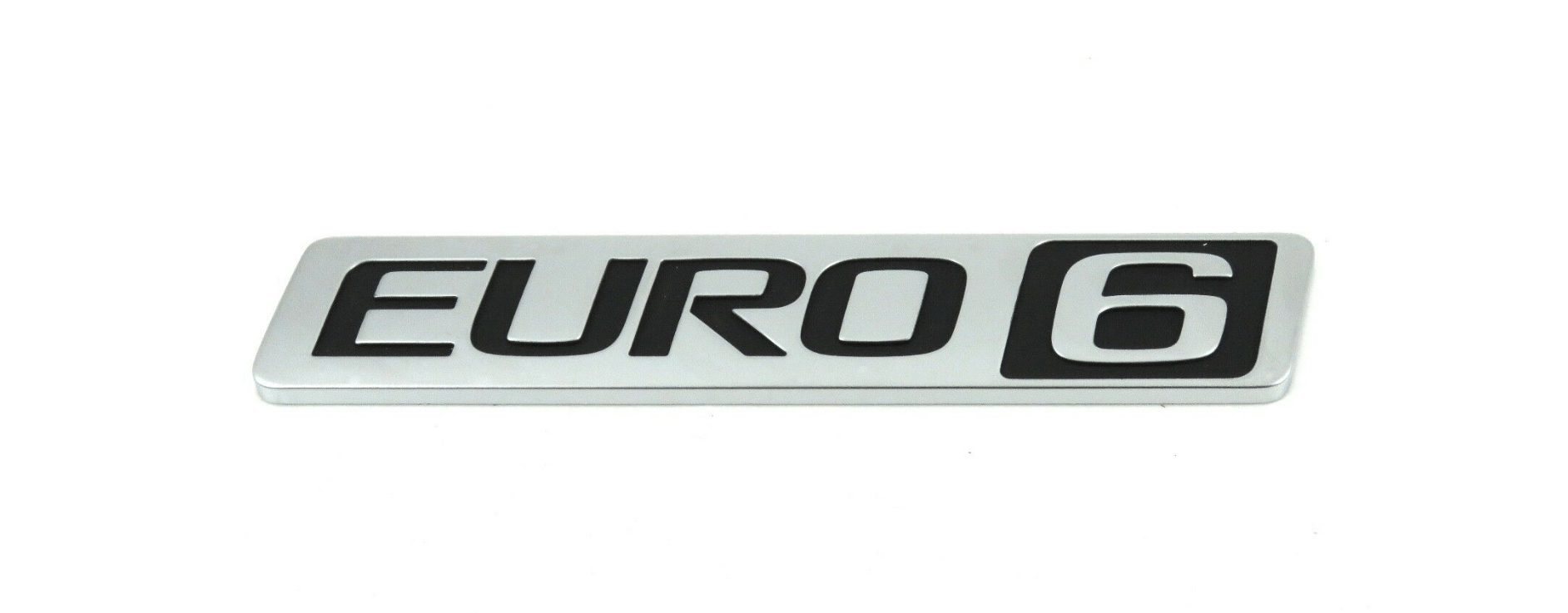 Euro 6 logo indicates whether a vehicle is compliant
Euro 6 logo indicates whether a vehicle is compliant
Subject to a Government proposal, heavy good vehicle owners that operate within the Greater Manchester Clean Air Zone could apply to a multi-million-pound funding package. The funding is there to help companies upgrade to the more environmentally friendly euro 6 vehicles and avoid the penalties.
As a waste management company operating in the Greater Manchester area for over 50 years, environmental sustainability is at the forefront of our businesses operations. We take great pride in our recognisable fleets of vehicles. Our vehicles are key to our business's success, so investing in our vehicles has always been important.
ISM Waste & Recycling is already well ahead of the game - having taken proactive action well before the laws come into effect. The majority of our vehicle fleet already have the latest and most efficient Volvo Euro 6 engines. The key benefits of Euro 6 engines in our trucks help us to reduce our carbon footprint and reduce our environmental impact. The engines in our trucks lower NO2 emissions by 77% and lowering particulates by half without compromising on engine performance. The Euro-6 engines still offer the same driving quality and reliability as the older Euro-5 engines did while being significantly better for the environment.
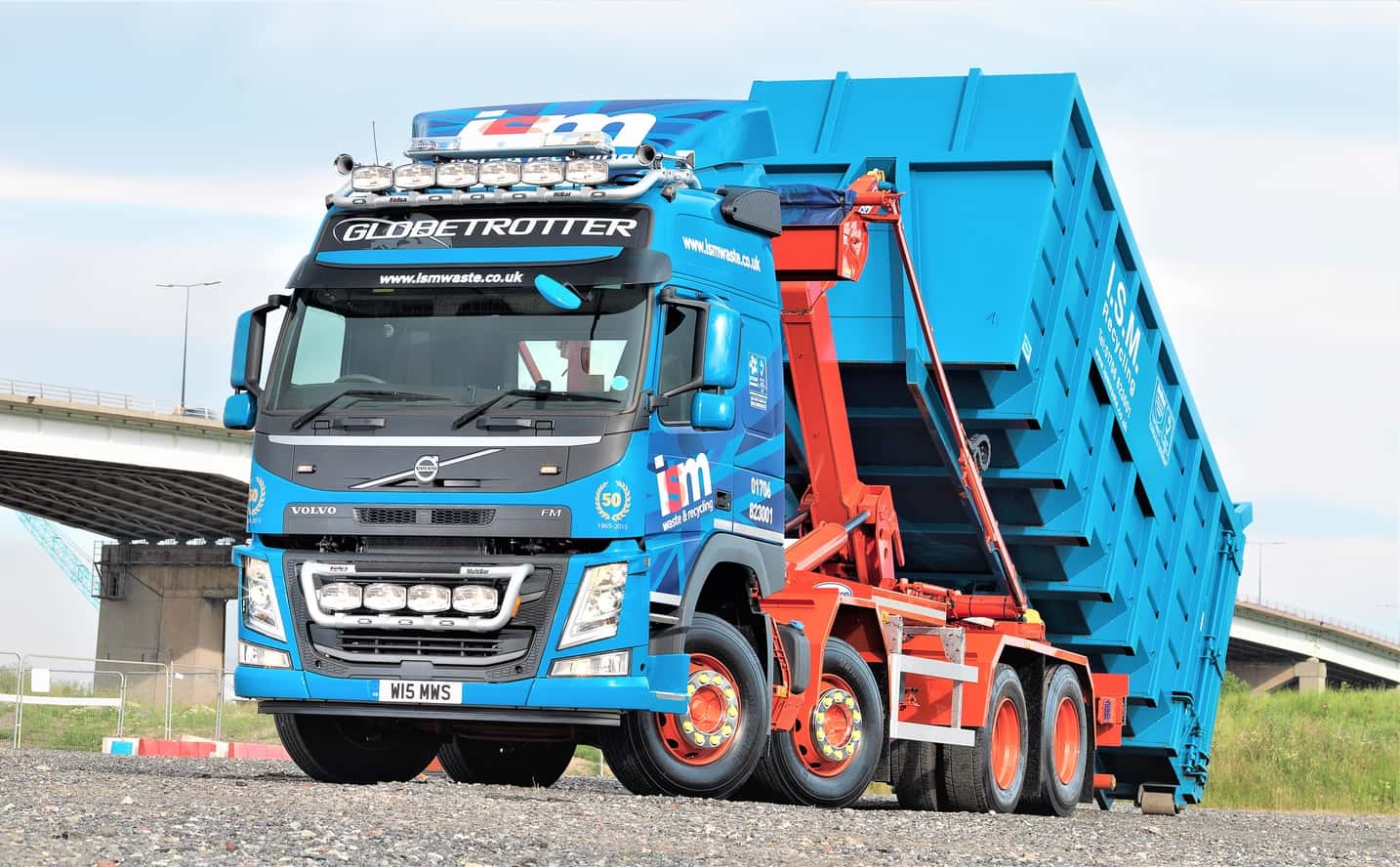 One of ISM's new Volvo FM compliant Euro 6 HGVs
One of ISM's new Volvo FM compliant Euro 6 HGVs
What is the Clean Air Zone?
The clean air zone is a solution for reducing harmful pollution on our roads and in the air we breathe. The main way of doing this is to charge the highest polluting vehicles a daily penalty when they enter or travel within Greater Manchester. The idea is to encourage business owners to upgrade from Euro 5 and earlier vehicles to the newer, more efficient and environmentally friendly Euro 6. The Clean Air Aone will operate throughout all ten boroughs of Greater Manchester - City of Manchester, Tameside, Stockport, Oldham, Rochdale, Bury, Bolton, Wigan, Trafford and City of Salford.
The clean air plan's high daily penalties are likely to achieve this and encourage businesses with commercial vehicles to use newer, more environmentally-friendly vehicles. More Euro 6 vehicles on the roads in Manchester will have a positive impact on the air we breathe.
The clean air zone (CAZ) will initially only focus on older, more polluting buses, coaches, taxis, private hire vehicles, lorries and vans. However, cars, motorbikes, mopeds and smaller vehicles will not be included.
The penalties will be applied to the older vehicles and will be in place 24 hours a day, seven days a week throughout all areas in Greater Manchester with exceptions for journeys made only on motorways and some other major roads in the area.
The Clean Air Zone in Manchester will become the biggest in the UK outside of London's Low Emission Zone.
The first stage will affect non-compliant buses, coaches, taxis, private hire vehicles and heavy goods vehicles from 2021 onwards.
In 2023 the clean air zone penalties will then extending to vans, minibuses, motorhomes and motorised horseboxes that don't meet the requirements.
The clean air zone is intended to make sure the Greater Manchester region meets its targets for reducing emissions of nitrogen dioxide as soon as possible.
Any profits from the Clean Air Zone would be used to cover its running costs. After that, any leftover money would be invested in improving transport in Greater Manchester. Any leftover money could be spent on major improvements to public transport and cycling and walking schemes.
Daily Penalties for Non-Compliant Vehicles
Non-compliant HGVs and coaches (Euro 5 and earlier) would be subject to a daily penalty of £100 to enter and travel within Greater Manchester from 2021 when the Clean Air Zone is introduced.
If the daily penalty is not paid, a PCN payment of £120 is proposed which would be in addition to the original daily penalty.
| Vehicle Type | Daily Penalty, £(GBP) |
|---|
| Taxi | £7.50 |
| LGV | £7.50 |
| HGV | £100 |
| Bus/Coach | £100 |
What is a Heavy Goods Vehicle?
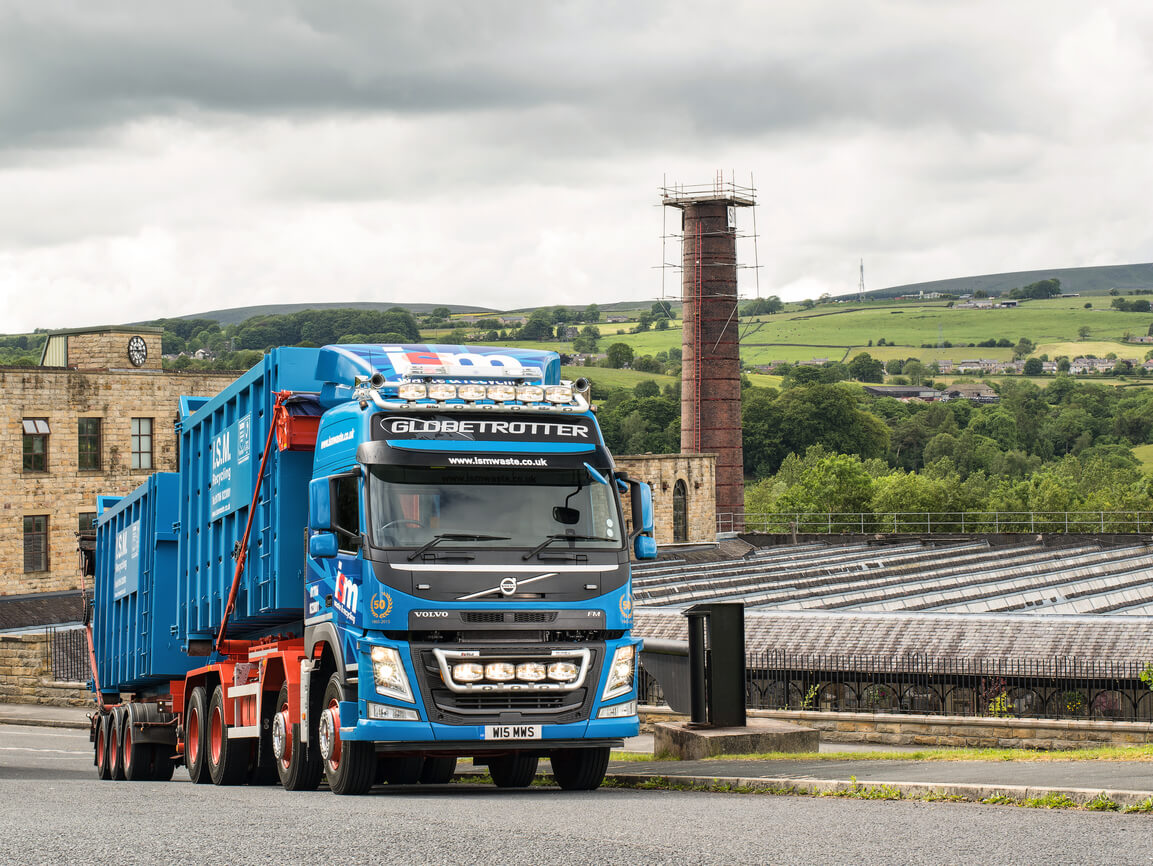 One of ISM's new compliant Volvo FM Euro 6 HGVs
One of ISM's new compliant Volvo FM Euro 6 HGVs
An HGV is a large vehicle weighing more than 3.5 tonnes (3500kg) when not carrying a load. This usually applies to commercial vehicles, also including smaller trucks with two axles, rigid and articulated trucks with more than two axles.
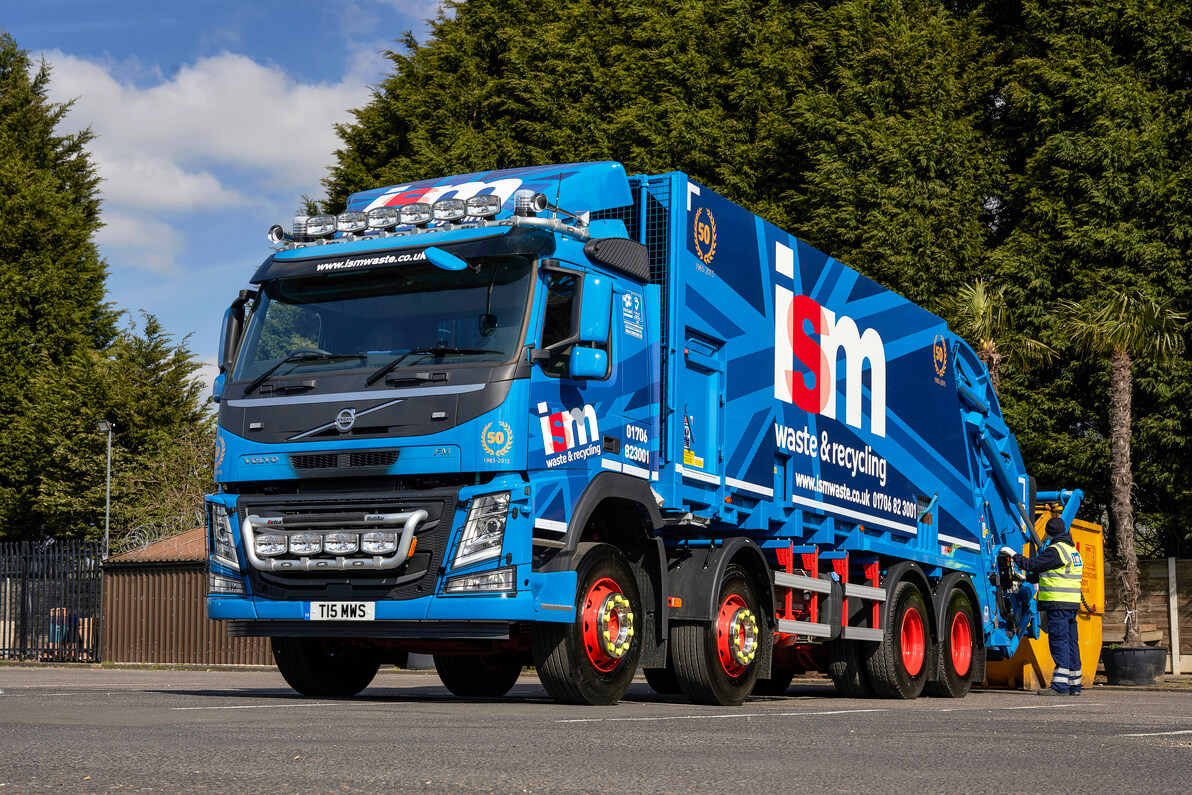 One of ISM's new compliant Volvo FM Euro 6 HGVs
One of ISM's new compliant Volvo FM Euro 6 HGVs
See the table below for details about how commercial light goods vehicles and heavy goods vehicles are categorised in the UK to understand better if your vehicles will be subject to the charges if the engines are not Euro 6. For more details visit GOV.co.uk for the full guide.
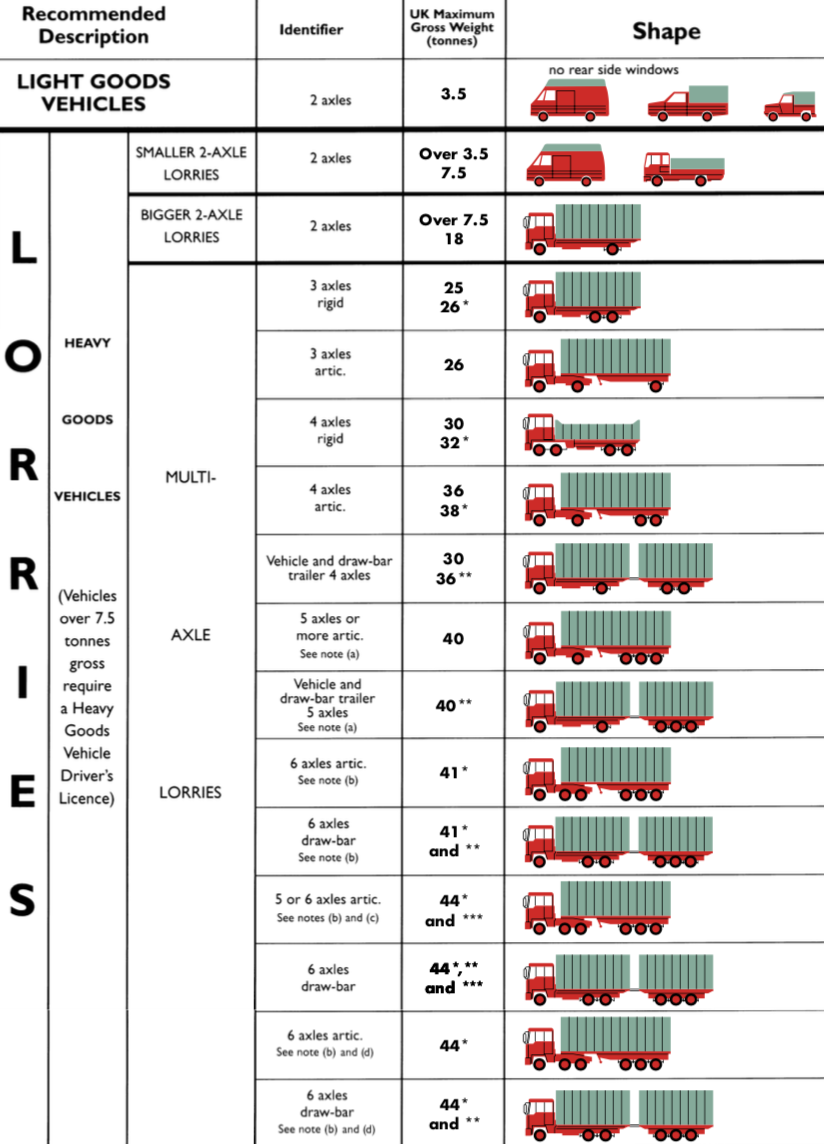
Would my HGV or coach be affected?
All HGVs that have a Euro 5 engine or earlier will have to pay the £100 per day penalty.
The HGVs that will be subject to the penalty are the older, less efficient HGVs (typically registered before 2013).
However, the newer more efficient Euro 6 engines (registered from 2013 onwards) will not have to pay the daily penalty for vehicles driving in the Greater Manchester Clean Air Zone when it is introduced.
The graph below comparing Euro 3, Euro 4, Euro 5 and Euro 6 heavy goods vehicle engines shows how much NOx emissions have decreased since Euro 3 engines. Comparing the newer Euro 6 engines with the Euro 3 engines introduced in 2001 shows that NOx emissions have reduced by over 95% since then.
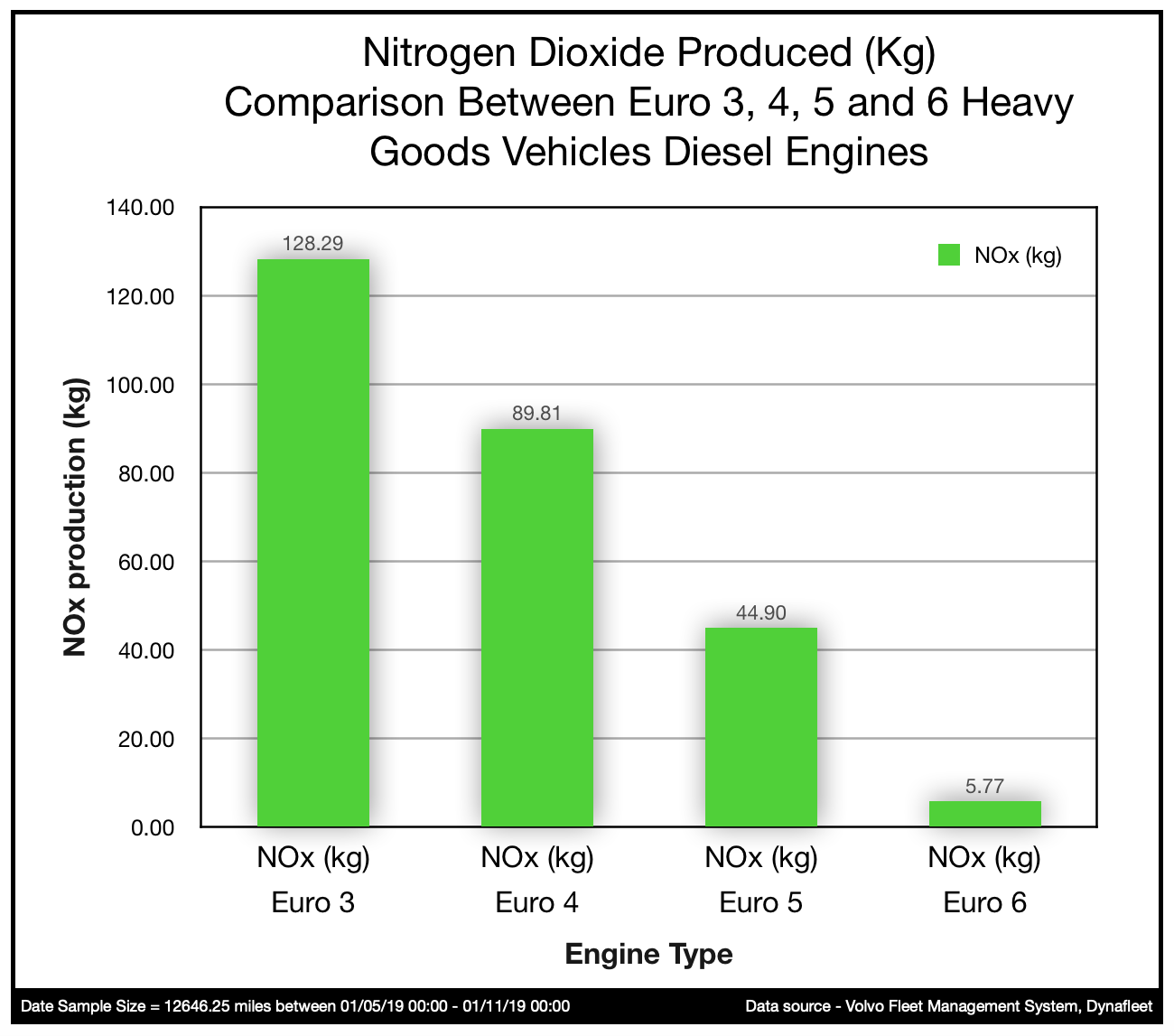
Carbon Monoxide has also seen a significant decrease with the European Emission standard HGV engines. When comparing Euro 3 to Euro 6, the data in the graph shows CO emissions have decreased by a considerable amount of 98.8%.
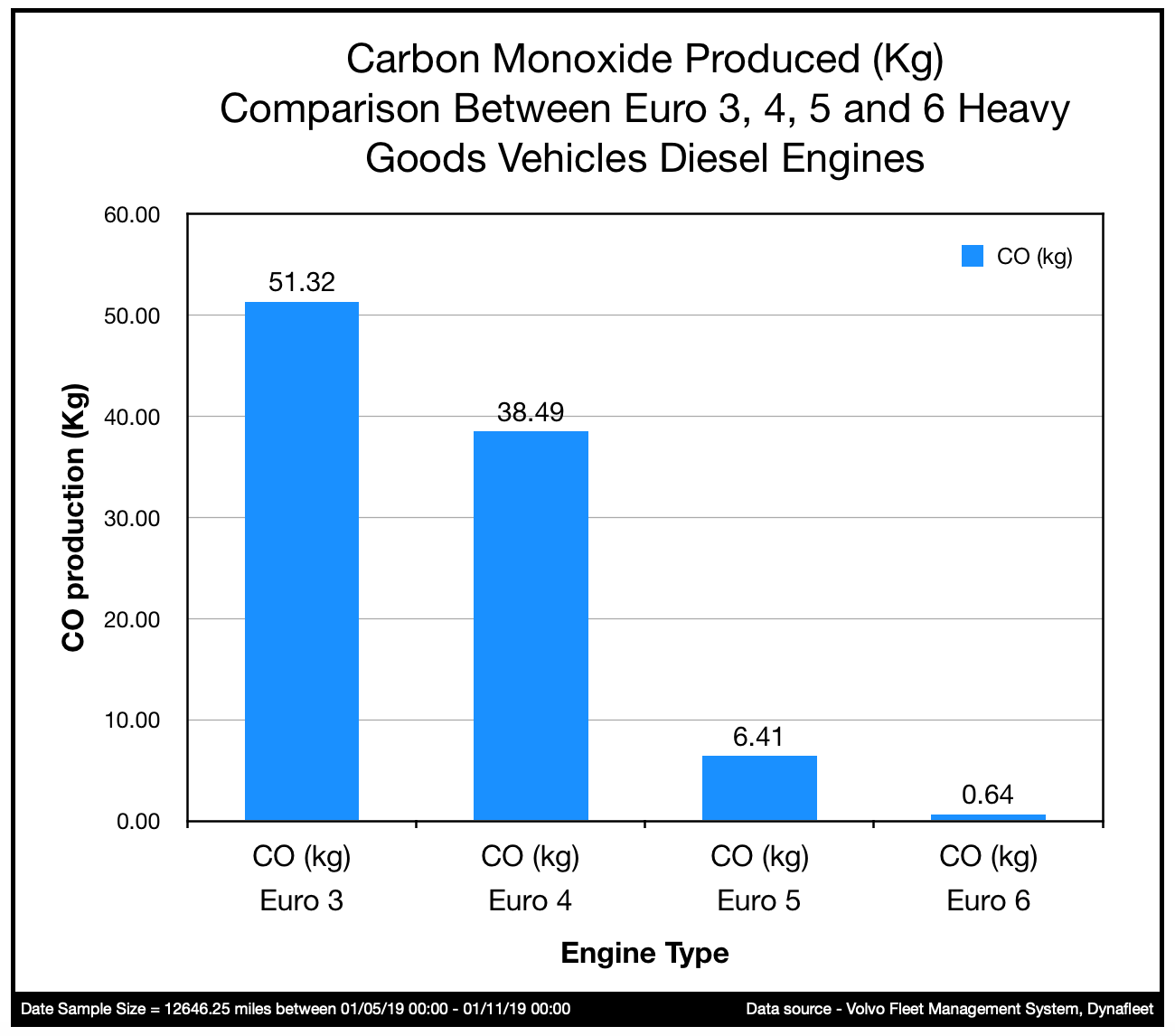
Why are HGVs and coaches included?
Large commercial and passenger vehicles are used much more intensively.
They are often operating in town and city centres with higher frequency, so the benefit of cleaning them up is far higher than smaller vehicles such as cars.
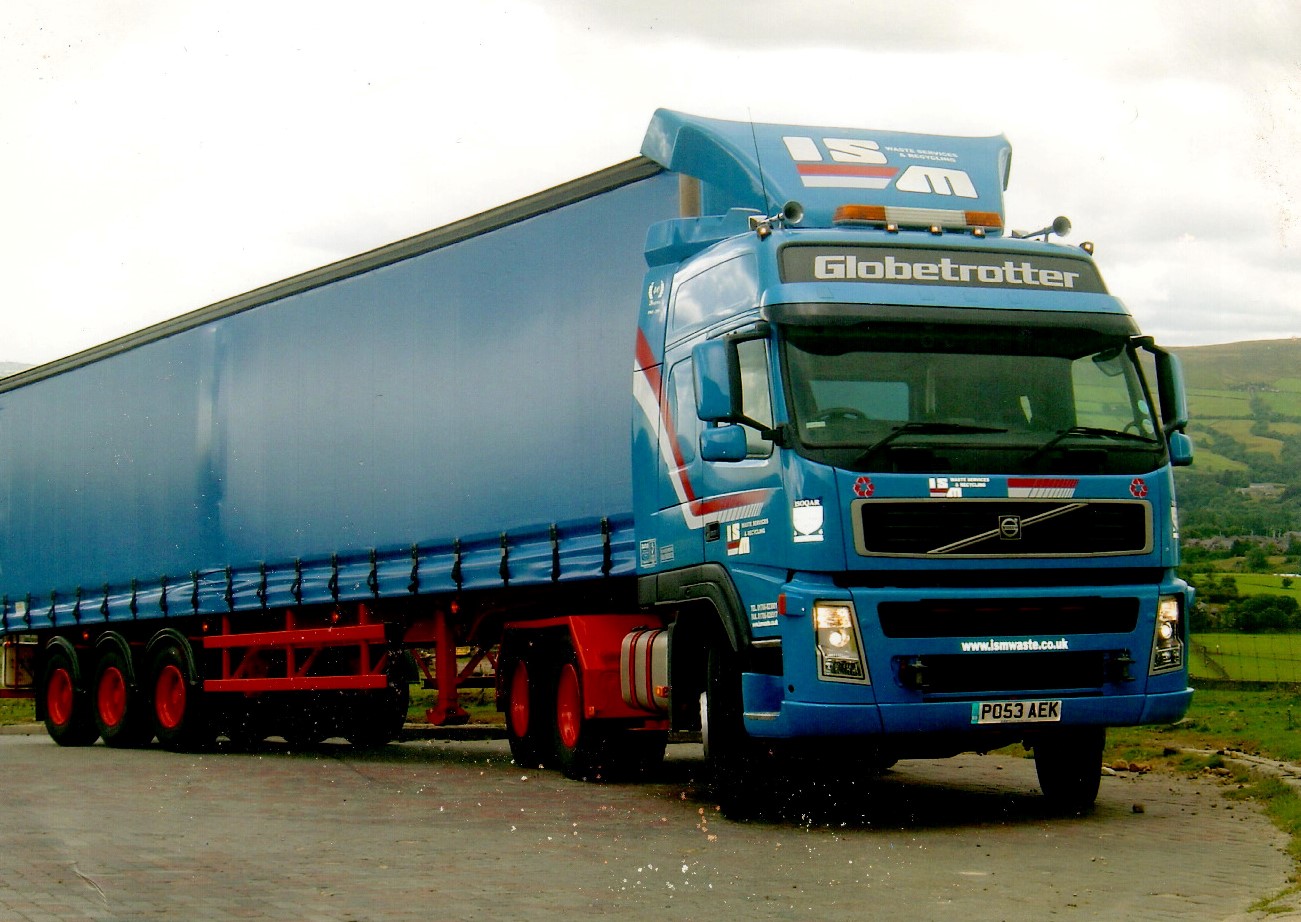 Older HGV that would no longer be compliant with the new Greater Manchester Clean Air Zone
Older HGV that would no longer be compliant with the new Greater Manchester Clean Air Zone
What is Air Pollution?
An air pollutant is any substance in the air that has the potential to cause harm to people.
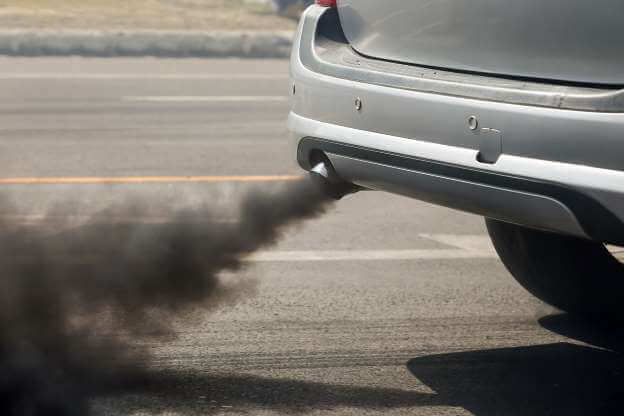 Cars and other passenger vehicles are a major contributor to air pollution, producing significant amounts of nitrogen oxides (NO2), carbon monoxide (CO), and other pollution.
Cars and other passenger vehicles are a major contributor to air pollution, producing significant amounts of nitrogen oxides (NO2), carbon monoxide (CO), and other pollution.
Air pollution in the UK is often a mix of harmful gases such as Nitrogen Dioxide (NO2), Carbon Monoxide(CO) and Sulphur Dioxide(SO2) and tiny dust particles produced by burning fuel.
Throughout the UK, different areas of the UK have varying levels of air pollution, depending on a variety of factors.
Higher amounts of pollutants are regularly found in UK towns and cities. This is because sources of pollution, such as road traffic, are often more concentrated because they are more densely populated areas.
Air pollution can also vary depending on the weather conditions and the season. For example, it's more difficult for pollution to disperse during calm, sunny weather in summer and still, foggy weather in winter.
Types of Air Pollution
Some of the most harmful pollutants produced throughout Greater Manchester are those produced by our road transport, particularly diesel vehicles.
Many of the vehicles on our local roads in Greater Manchester produce fumes containing toxic gases and small particles.
Diesel vehicles produce more pollutants than those that run on petrol engines, and diesel vehicles are the most significant source of harmful air pollution from transport.
Larger commercial and passenger vehicles produce higher levels of pollution because of their larger engines. This includes HGVs, buses, vans, taxis and private hire vehicles.
Air pollution produced by vehicles is split into primary and secondary pollution. Primary pollution is released directly into the atmosphere from vehicle exhausts, and secondary pollution is as a result of chemical reactions between pollutants in the atmosphere.
The most common pollutants from motor vehicles are:
Nitrogen Dioxide (NO2)
Road traffic is one of the major producers of NO2 as it is primarily caused by burning fuel.
People that are often exposed to higher levels of Nitrogen Dioxide could potentially lead to health complications such as asthma and being at a higher risk of developing respiratory problems. Nitrogen dioxide could also cause existing breathing problems to become worse and cause increased coughing and wheezing.
Young children and older people are more vulnerable to the effects of NO2. High levels of NO2 not only affects people, but it can also affect the environment by damaging vegetation and plants.
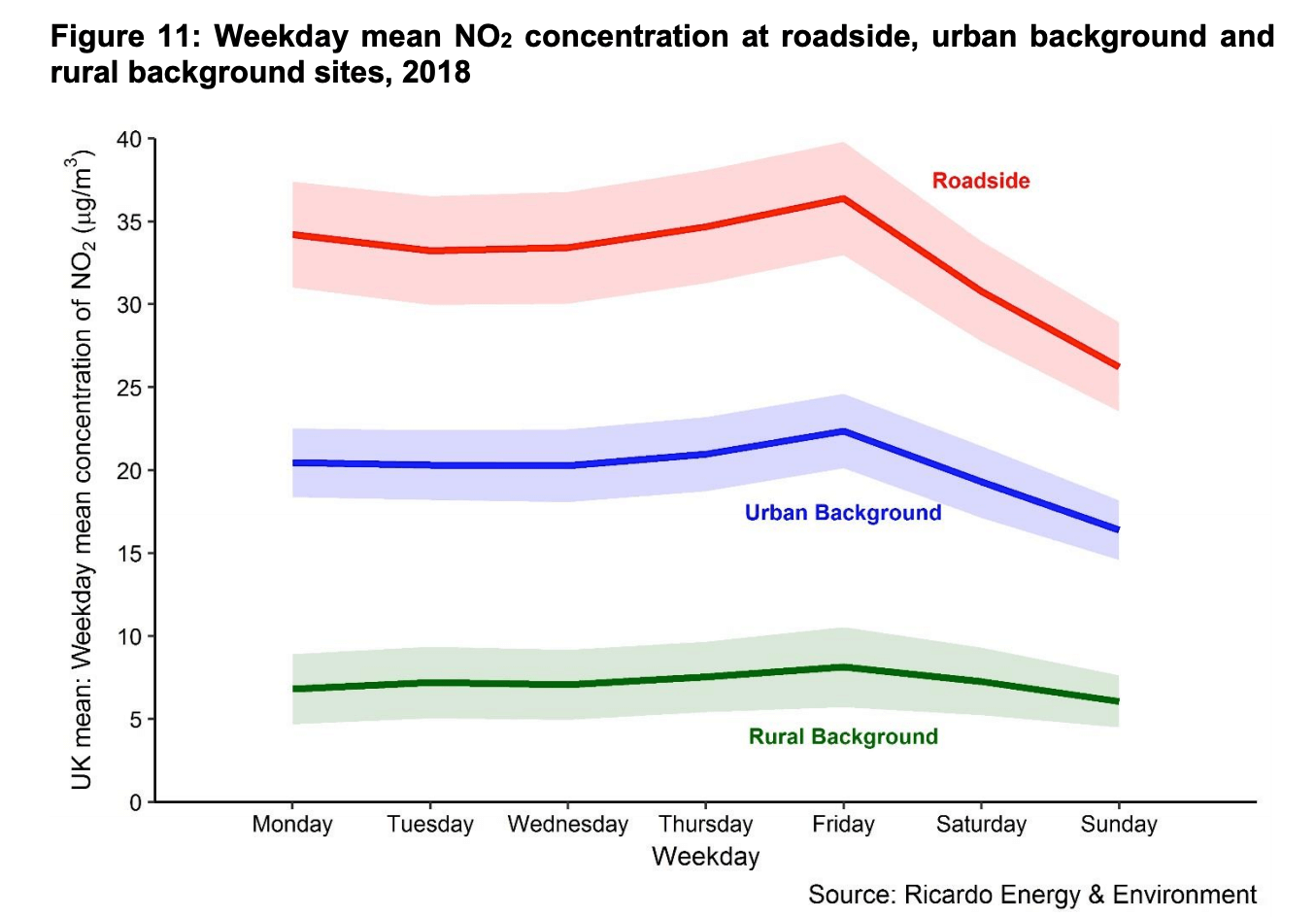
Carbon Monoxide (CO)
Carbon monoxide is a poisonous gas that has no smell or taste which can make it particularly challenging to detect.
Outdoors, it is produced mainly by vehicles and the burning of fossil fuels, particularly petrol.
After carbon monoxide is breathed in, it enters your bloodstream and mixes with haemoglobin and preventing enough Oxygen reaching the brain and heart. However, there is a low chance of CO causing significant health issues outdoors.
Ozone (O3)
Ozone (O3) is a type of Oxygen with a pale blue colour and distinctive smell. Ozone in the stratosphere is needed to help shield us from the sun's ultraviolet rays.
However, at ground level, Ozone is a dangerous pollutant and one of the main components of 'smog'.
Unhealthy levels of O3 are more likely to happen on hot, sunny days.
Ozone irritates the lungs, increasing the symptoms of people suffering from asthma and lung diseases.
Sulphur Dioxide (SO2)
The primary source of sulphur dioxide (SO2) in the UK is power stations burning fossil fuels such as coal and heavy oils.
Even moderate amounts of SO2 can cause problems for people that have asthma. In areas with high concentrations of SO2, this can cause tightness in the chest and coughing, and the difficulties for asthmatics may become more severe, possibly even need medical assistance.
SO2 can also contribute to acid rain, damaging the environment.
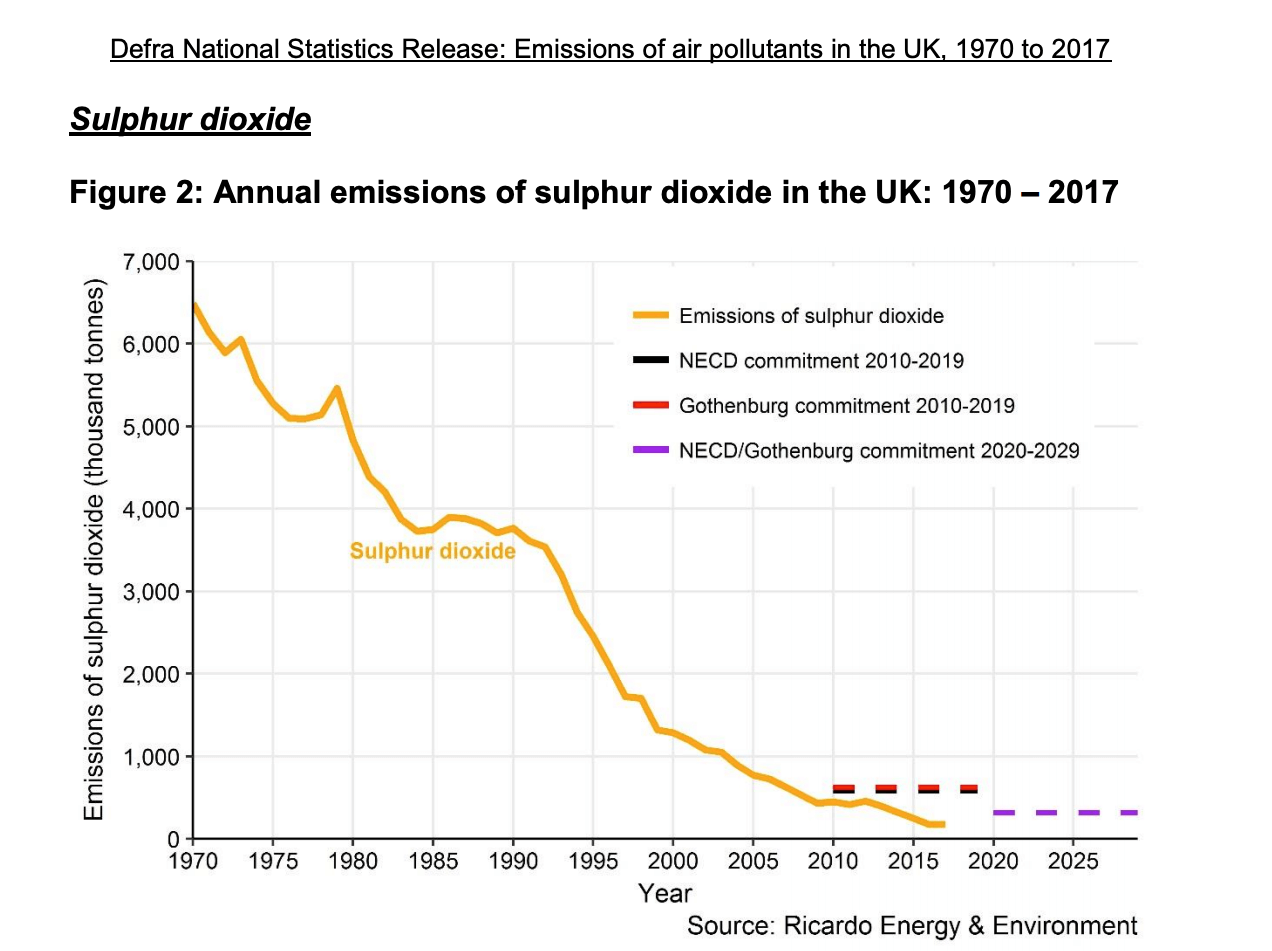
Particulate Matter
Road traffic and burning fossil fuels mainly cause particulate matter. In very polluted areas particles can be seen as smog.
Breathing fine particles into your lungs can cause inflammation and can make heart and lung conditions worse.
Some particular matter also contains carcinogenic properties. Similar to other types of air pollution, particles can also aggravate asthma, and cause coughing and difficulty breathing.
Greater Manchester's clean air zone will help to reduce NO2 and particulate matter. Greater Manchester has also committed to meet the World Health Organisation's guidelines for particulate pollution levels by 2030.
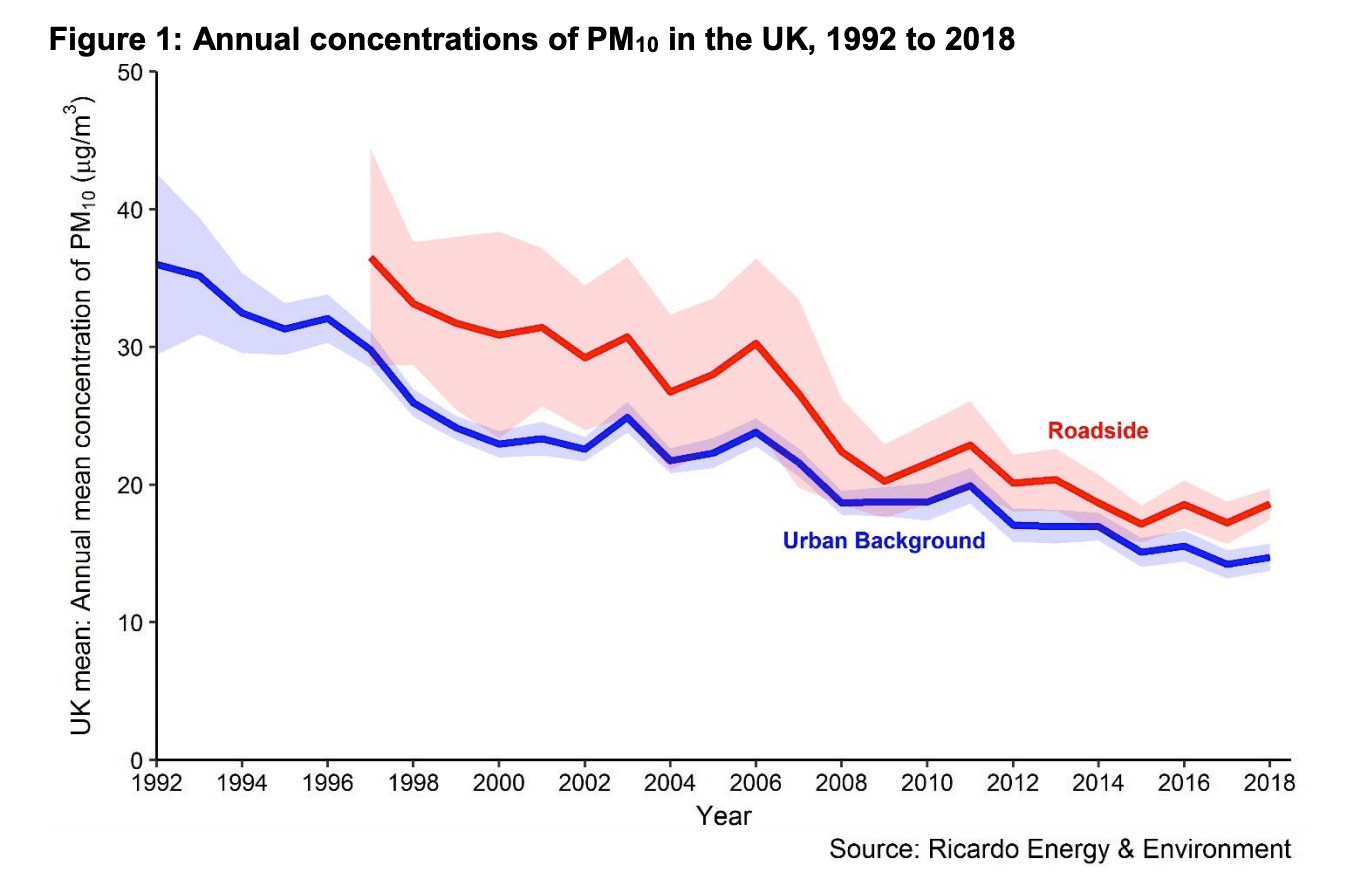
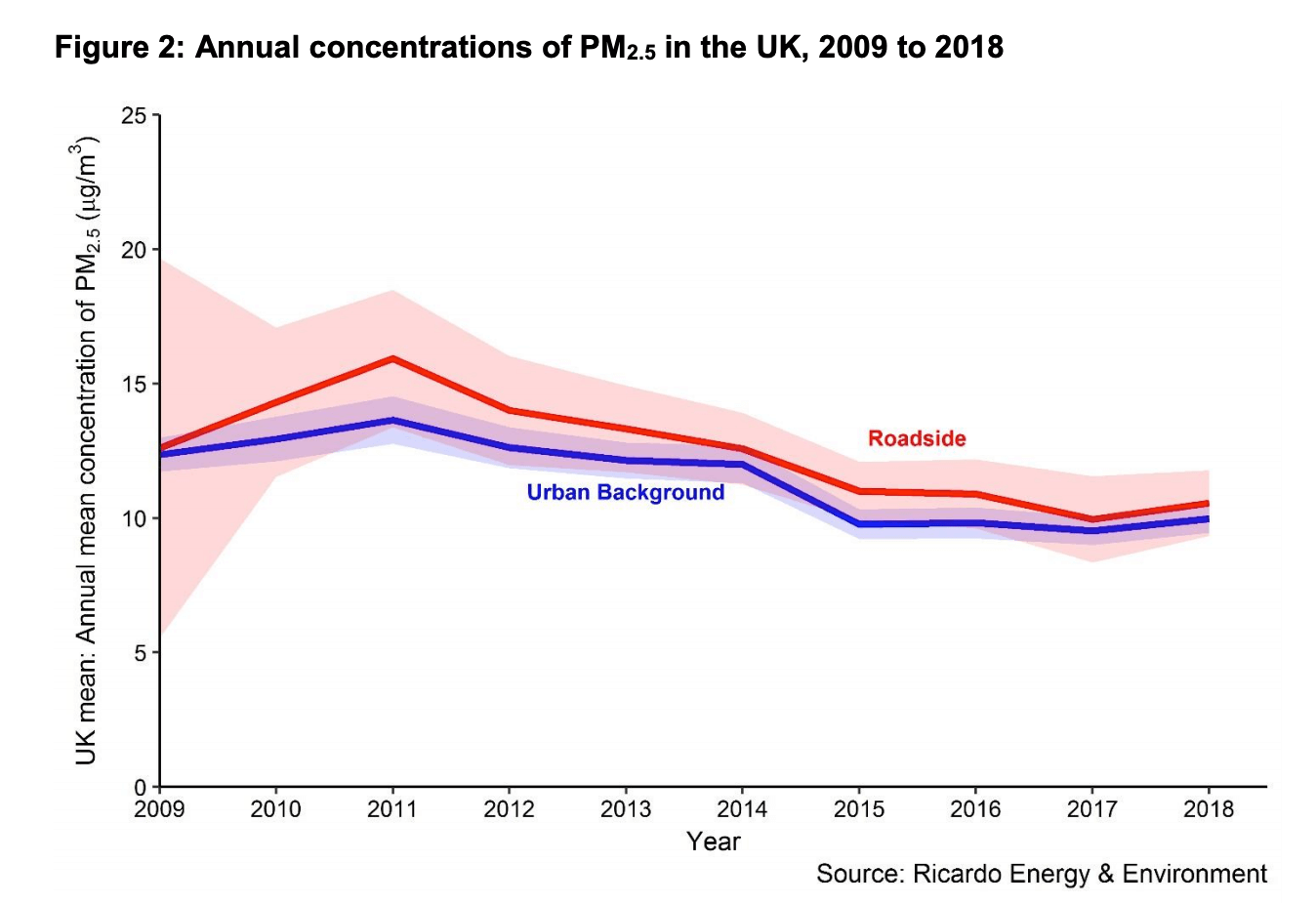
Did You Know?
Air pollution is one of the UK's and the world's biggest killers.
Air pollution contributes to the equivalent of 1,200 deaths a year in Greater Manchester.
We are all affected by air pollution but, children are most vulnerable to air pollution.
Air pollution is the most considerable environmental risk to public health linked to deaths in Greater Manchester.
Air pollution causes up to 36,000 early deaths a year in the UK.
The air you breathe inside your car can be worse than the air outside.
The health and social care costs of air pollution in England could reach £5.3 billion by 2035 unless action is taken.
Top Tips to Reduce and Avoid Air Pollution
There are plenty of ways we can all contribute to reducing air pollution in Greater Manchester. By being more aware and with a few easy lifestyle changes could make a massive difference to the air we breathe.
Walk or Cycle
It may come as a surprise, but actually, drivers can be exposed to more pollution inside their cars than those who walk or cycle.
Reducing the time in your car by walking and cycling more will both reduce the amount of pollution you produce and the amount you get exposed to.
Use Public Transport
Busses and trams can carry many more passengers on one vehicle. By reducing the number of cars on city roads, the level of traffic noise, and the amount of exhaust emissions produced will be lower.
Reduced emissions from vehicles in urban areas will reduce smog, to meet air quality standards, and to decrease the health risks of poor air quality to their residents.
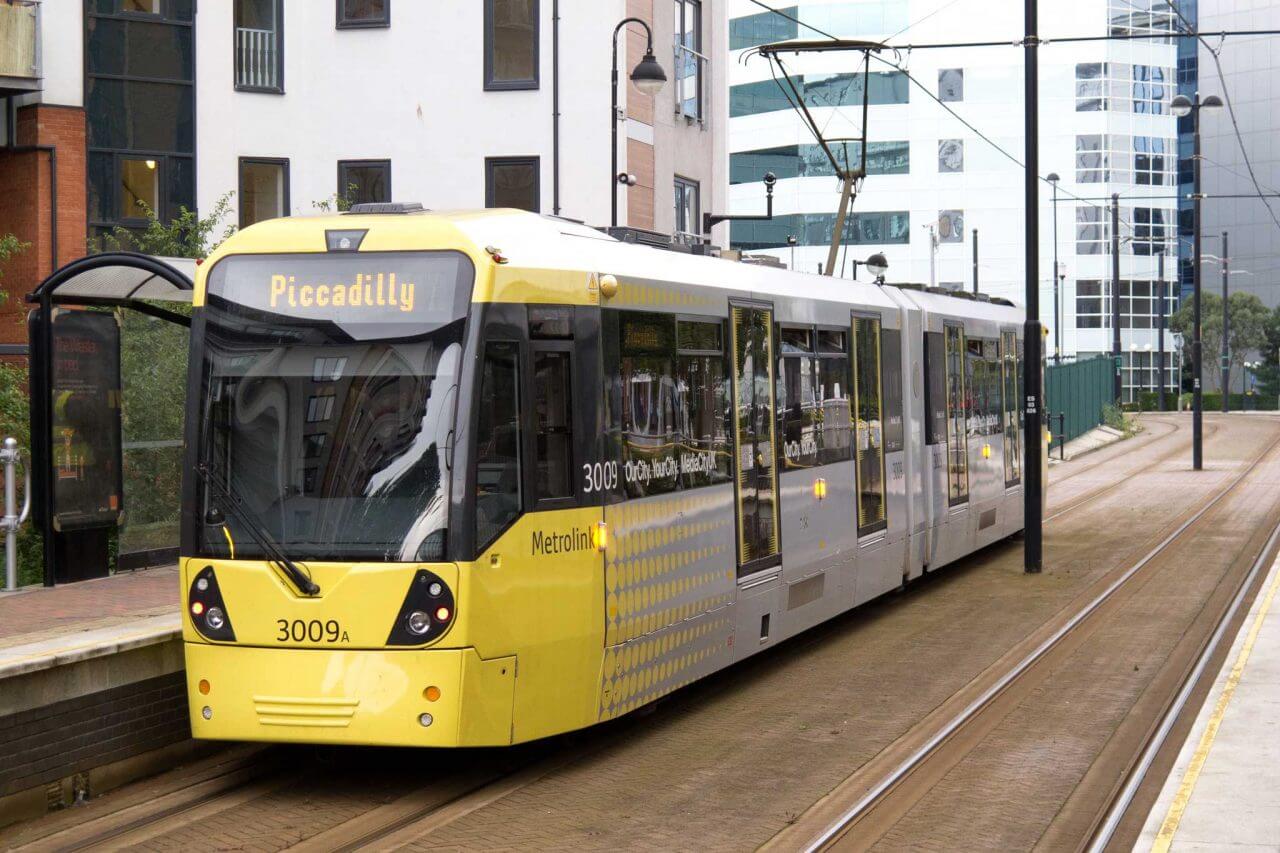
Keep Your Distance from Traffic
Not only will standing back from traffic potentially keep you safer, but it will also reduce the amount of harmful pollutants you breathe in. Being further away from traffic, the concentration of pollutants in the air you breathe will be lower.
Park and Ride
Park and ride facilities are car parks at public transport connections that allow commuters and other people heading to city centres to leave their vehicles. The idea is to encourage more people to use public transport by making it more convenient. Greater Manchester has over 3,500 spaces at Metrolink stops, train stations or bus stops making it easily accessible to most people.
Turn Your Engine off when you stop!
Turning off your engine and it's even easier if you have a stop/start engine, it does it automatically. When you're in stationary traffic turning off your engine reduces unnecessary exhaust emissions. Stop-start technology is a relatively new system on most modern cars that cuts the engine when the vehicle is stationary, to reduce fuel consumption and emissions. The engine starts again when the clutch is engaged, or the brake is released, or when the driver is ready to move.
Regularly Service Your Car
Having your car serviced regularly is vital to help identify problems early and to ensure your vehicle always works as safely and efficiently as possible. Regular services can also save motorists money at the petrol pump. Simply maintaining oil levels and replacing old air filters make for a smoother running engine and a more fuel-efficient car.
Have the Correct Tyre Pressure
Correctly inflated tyres can reduce fuel consumption and therefore reduce pollution put out by your car, so make sure you check yours regularly. You should be able to find the recommended tyre pressures for your car in the vehicle handbook. Tyres with the correct pressure can also improve the steering of your vehicle, stopping distances and grip on the road. Surprisingly under-inflated tyres can significantly increase stopping distances by up to eight metres, even more so in heavier vehicles and when the weather is bad, or the roads are icy.
Car Share
Car sharing can have many benefits for you and the environment. By car sharing, you can reduce demand for parking in busy areas and city centres, save on your fuel costs, reduce congestion on roads and reduce exhaust emissions. The more people trying out car sharing, the less time we'd all be driving around looking and hoping a parking spot becomes available.
Cycle to Work
There's loads of great reason for why you should give cycling to work a try. Not only does it reduce the amount of pollution on our roads, but cycling is also great exercise. According to Transport for Greater Manchester, another key reason for giving cycling a chance is the amount of money you could be saving. Cycling to work is 16 times cheaper than driving and costs an average of £110 per year.
Go Electric!
Electric cars (EVs) offer a range of financial, performance and environmental benefits when compared with internal combustion engine vehicles. Electric vehicles produce zero exhaust emissions, which means they do not emit any harmful exhaust gases or soot into the atmosphere. While electric cars can appear expensive, they actually offer excellent value because of the low running costs and low maintenance costs. So, electric vehicles are worth considering for those looking for a cheaper, more efficient and reliable way to get around.
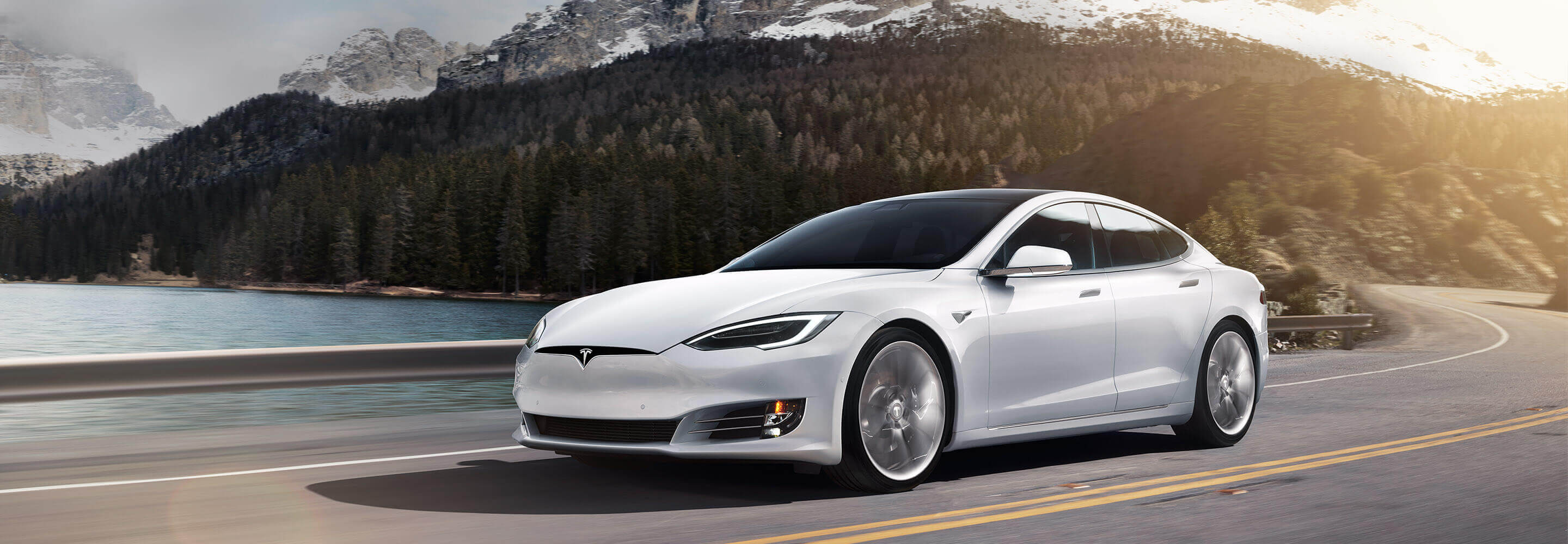
Drive More Efficiently!
When driving, there are plenty of ways you can make sure you're driving more efficient and, environmentally friendly. Fuel-efficient driving can save you hundreds of pounds in fuel each year, improve road safety and prevent extra exhaust emissions. To drive more efficiently, you can accelerate more gently, maintain steady speeds when possible and avoid high speeds.
Final Thoughts
The Greater Manchester Clean Air Plan is a step in the right direction for improving the air quality throughout the 10 boroughs of Greater Manchester. However, even though the current plans only include commercial vehicles, it doesn't mean they're the only ones that can make a difference. There's plenty of things we can all do as individuals to reduce our carbon footprint, reduce air pollution and do our bit for the environment.
ISM Waste & Recycling
ISM Waste & Recycling provide waste management, skip hire, recycling and specialist waste services throughout the North West of England, for both commercial and domestic customers. Call us today on 01706 823001 for more information about our services.
Waste Management Services
Written by James Kay
james.kay@ismwaste.co.uk
